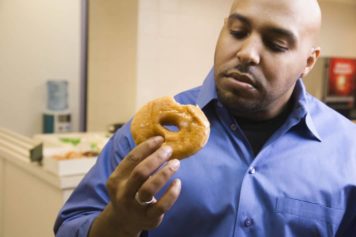 People who are aerobically fit as teenagers are less likely to have a heart attack in middle age, a study of nearly 750,000 Swedish men suggests.
People who are aerobically fit as teenagers are less likely to have a heart attack in middle age, a study of nearly 750,000 Swedish men suggests.On Wednesday, the study published online at European Heart Journal, revealed that every 15 percent increase of aerobic fitness had decreased the risk of a heart attack by 18 percent decades later for the participants.
Thus, summing up that physical activity during childhood can still benefit a person over time.
According to Dr. Stephen Daniels, chairman of pediatrics at the University of Colorado School of Medicine and a spokesman for the American Heart Association, “Even though the diseases we see are diseases of older adults, it’s increasingly clear that where people are in childhood and adolescence is critically important. We probably aren’t doing enough to help our young population become fit and avoid obesity.”
According to the American heart Association, every 34 seconds someone in America has a heart attack.
The study also added some insight into the role obesity plays in the risk of heart attack and fitness levels.
For participants classified as overweight or obese, their past aerobic fitness level did play a role in their current risk for a heart attack. The “former fittest” but currently obese persons had a 60 percent less chance of having a heart attack than obese persons who were “least fit” as adolescents.
However, obese participants who were very fit still have a 71 percent chance of a heart attack compared to participants who are lean, but were unfit as teenagers.
Only aerobic or cardio fitness made a positive impact on heart health, and muscle or strength training did not yield the same results.
Experts are reiterating their message of physical activity especially for children and adolescents. Dr. Mark Urman, a member of the American College of Cardiology’s Prevention of Cardiovascular Disease Committee says, “If you’re fit as a teenager, you’re going to be more likely to stay in shape over the course of your life. The better shape you’re in, the less apt you are to have cardiovascular problems.”
S.C. Rhyne is a blogger and novelist in New York City. Follow the author on twitter @ReporterandGirl or on Facebook.com/TheReporterandTheGirl and visit her website at www.SCRhyne.com

